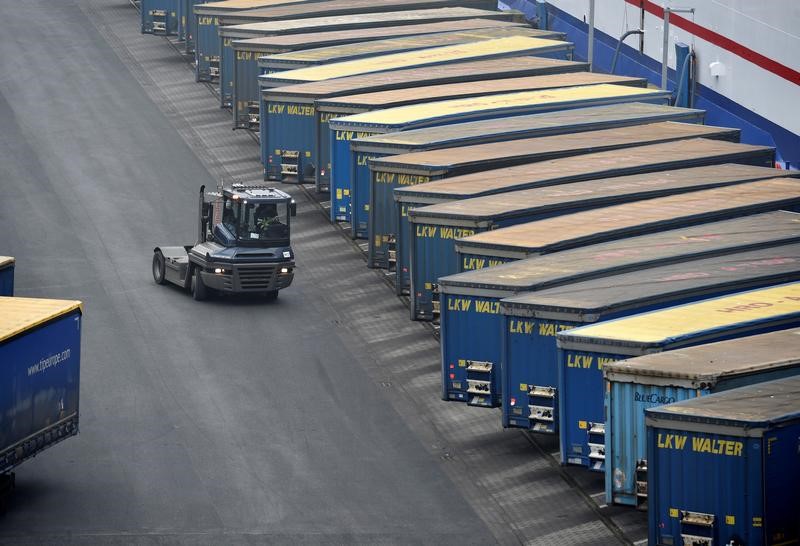BRUSSELS (Reuters) - Euro zone's trade boomed in May with both exports and imports of goods to the rest of the world growing markedly, in a new sign that global commerce was in good health.
The European Union, the world's main trader, also saw its trade increase with all its main partners, with a surge of exchanges with Russia despite economic sanctions on Moscow.
The European Union statistics office Eurostat said on Friday the 19-country currency area in May exported goods worth 189.6 billion euros ($216.3 billion) to the rest of the world, an increase by 12.9 percent on the year.
Imports also grew yearly by 16.4 percent for a total volume of 168.1 billion euros, according to data not adjusted for seasonal factors.
Both figures were the second highest ever-recorded for the euro zone after the peak reached in March when exports were above 200 billion euros and imports stood at 176 billion euros.
The faster growth of imports compared to exports slightly reduced the bloc's trade surplus which stood at 21.4 billion euros in May, lower than the 23.4 billion surplus recorded in May 2016.
Commerce among the 19 euro zone states also increased by 15.3 percent in May on a yearly basis, for a volume of 162.4 billion euros of traded goods.
The European Union as a whole also recorded a 15.9 percent surge of exports to the rest of the world in May year-on-year and a 17.2 percent increase of imports, Eurostat said.
The 28-country bloc expanded its trade with all its main partners in the period between January and May, with exports to the United States rising on the year 6.6 percent and to China 20.3 percent, while imports increased respectively 4.0 and 6.8 percent.
The highest increases were recorded with Russia, which overtook Switzerland as the third main source of imports for the EU.
Despite western economic sanctions imposed after Russia's annexation of Crimea in 2014, EU exports to Russia grew 24.6 percent between January and May, driven by manufactured goods and machinery, while imports, composed principally of oil and gas, surged by 37.6 percent.

As a result, EU trade deficit with Russia expanded in May to 29.5 billion euros from 18.9 billions the year earlier.